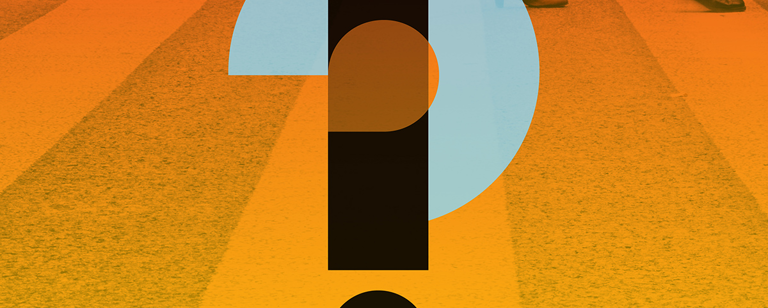What are the most important questions facing Australians – today and in the future?
At the first Festival of Questions session, we’ll scan the horizons, break deadlocked debates and dust off the issues rotting for too long at the bottom of the nation’s too-hard basket. And we’re bringing together some of the sharpest thinkers we know to help us do it.
Each of our speakers will present their ideas on the issues Australia needs to confront head-on. Then it’s over to you. Should there be a citizenship test to buy property in Australia? Should the public really have a say about ‘marriage equality’? Is compulsory voting bad for democracy? The Wheeler Centre has travelled the country asking these questions, and now it’s Melbourne’s turn.
As Australians, who do we want to be and how are we going to get there?
Featuring Gareth Evans, Julian Burnside, Shireen Morris, Helen Razer, Jamila Rizvi, Geraldine Doogue and Jack Latimore. Co-hosted by Deborah Frances-White and Rebecca Huntley.
All sessions of The Festival of Questions will be Auslan interpreted.
Presented in partnership with Melbourne Festival and City of Melbourne.
Featuring
Gareth Evans
Gareth Evans is a writer, academic, lawyer and former cabinet minister.
He was a Cabinet Minister in the Hawke and Keating Governments for thirteen years, as Attorney General, Minister for Resources & Energy, Transport & Communications, and Foreign Affairs; Leader of the Government in the Senate for four years; and Deputy Leader of the Opposition in the House of Representative for three years. After 21 years in the Australian Parliament, he led the Brussels-based International Crisis Group from 2000-2009.
Gareth Evans has been Chancellor and Honorary Professorial Fellow of the Australian National University since 2010, and has written or edited twelve books on international relations, government, and legal and constitutional reform.
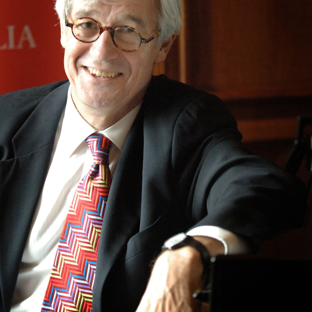
Julian Burnside
Julian Burnside is a Melbourne barrister. He joined the Bar in 1976 and took silk in 1989. He specialises in commercial litigation, and has acted in many very contentious cases - the MUA Waterfront dispute; the Cash-for-Comment enquiry; cases for Alan Bond and Rose Porteous - but has become known for his human rights work and has acted pro bono in many refugee cases.
He is an outspoken opponent of the mistreatment of people who come to Australia seeking protection from persecution. His latest book is Watching Out: Reflections on Justice and Injustice (Scribe).
Geraldine Doogue
Geraldine Doogue is a highly accomplished Australian journalist and presenter whose career in print, television and radio includes Four Corners, the Australian, Life Matters, Compass and Saturday Extra.
While originally planning a career as a schoolteacher after completing her Arts degree, in 1972 Geraldine applied on an impulse for a journalism cadetship with The West Australian instead.
Since then she has thrived on that impulsive decision. Within the first ten years of her career, Geraldine had carved out a reputation in print, television and radio, including two years at the London Bureau working for the Murdoch group’s Australian papers.
Her entrance into television was unexpected. While she was covering a story for the Australian, an ABC Television reporter interviewed her for a Four Corners program. When the head office executives saw the interview, they were so impressed with her on-camera presence that they offered Geraldine the Perth compere’s position for ABC Television’s then new program Nationwide.
She soon moved to Sydney to host the NSW edition of the program and established herself as one of the most respected and popular personalities on national television. Geraldine then worked for a time on commercial radio with 2UE and on commercial television, co-presenting Channel 10’s main news bulletin, before returning to the ABC in 1990.
She played a major role in ABC TV’s coverage of the Gulf War. During this period Geraldine was awarded two Penguin Awards and a United Nations Media Peace Prize.
In 1992 Geraldine began presenting Life Matters, a new RN program which set out to cover the full gamut of social issues in everyday life. In 1998, she also became host of ABC TV’s Compass program, which looks at issues of spirituality, philosophy and belief every Sunday evening. After 11 years with Life Matters, she moved to host the influential program Saturday Extra, which focuses on international politics, Australia’s role on the world stage, and business.
In 2000 Geraldine was awarded a Churchill Fellowship for social and cultural reporting. In 2003, she was recognised with an Officer in the Order of Australia for services to the community and media.
She is married with two children and two step-children.
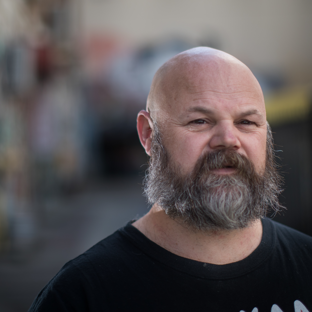
Jack Latimore
Jack Latimore is an Indigenous researcher with the Centre for Advancing Journalism. He is currently involved in the development of several projects aimed at improving the quality of Indigenous representation and participation in the mainstream media-sphere. His journalism work has appeared in Koori Mail, Guardian Australia, Overland and IndigenousX.
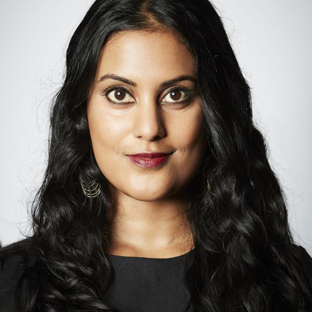
Shireen Morris
Shireen Morris is a lawyer, postdoctoral fellow at the University of Melbourne Law School, and a senior adviser on constitutional reform to Cape York Institute. She is the author of Radical Heart (MUP, 2018), the co-editor of The Forgotten People: Liberal and Conservative Approaches to Recognising Indigenous Peoples with Damien Freeman (MUP, 2016) and the editor of A Rightful Place: A Roadmap to Recognition (Black Inc, 2017). Shireen is a regular commentator on TV, radio and print media.
Helen Razer
Helen Razer was a broadcaster and is now a writer. Her appointments in radio were at the Triple J national network and ABC Melbourne. Her books include A Short History of Stupid, co-authored with national affairs correspondent Bernard Keane, a 2015 work on the history of bad Western thought shortlisted for the Russell Prize; and Total Propaganda, a popular work on Marxism recently published by Allen & Unwin.
Helen has written on social and political matters for the Age and Australian. She now contributes news and cultural analysis to outlets including Crikey, the Saturday Paper, Daily Review, Frankie, SBS and Atlantic digital publication Quartz.
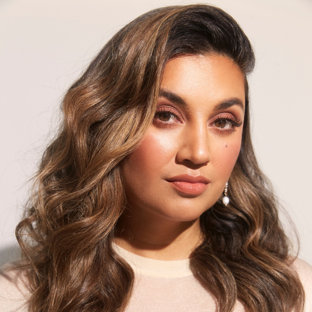
Jamila Rizvi
Jamila Rizvi is an experienced broadcaster, public speaker and social policy expert, as well as the bestselling author of Not Just Lucky and The Motherhood. As Deputy Managing Director of Future Women, Jamila ...
Deborah Frances-White
Deborah Frances-White is a stand up comedian, writer, speaker and podcaster. She is best known as the creator and host of The Guilty Feminist Podcast – which has had 20 million downloads in its first 18 months. It has just been nominated for a 2017 Aria Award for Best Podcast. She is currently writing a Guilty Feminist book for Virago at Little, Brown.
Her BBC Radio 4 show Deborah Frances-White Rolls the Dice is an anthology of stand-up comedy and dramatised stories about her real life experiences, including finding her biological mother and leaving a cult. The first series won The Writers’ Guild Award for Best Radio Comedy in the UK, and the second series has just aired.
Deborah is a screenwriter whose first feature film Say My Name is currently in post-production with Electric Entertainment.
She regularly speaks about diversity and inclusion in the business world, and her clients include Facebook, LinkedIn, EY and Microsoft. She was nominated for a First Woman Award for her work in diversity in 2016. Deborah is also the host and creator of Global Pillage, a diversity-based comedy panel show podcast. She is currently curating a podcast season in association with Time Peace, a British app which connects local people with refugees to build community and share skills.

Rebecca Huntley
Rebecca Huntley is one of Australia's most respected researchers on social and consumer trends, and head of research at Essential Media. She is the author of Still Lucky: Why You Should Feel Optimistic About Australia and Its People.
